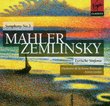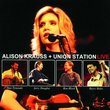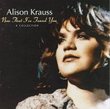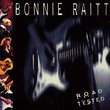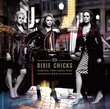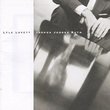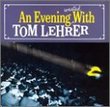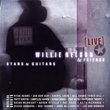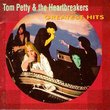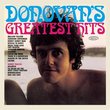| All Artists: Kris Kristofferson Title: Austin Sessions Members Wishing: 0 Total Copies: 0 Label: Atlantic / Wea Original Release Date: 8/24/1999 Release Date: 8/24/1999 Genres: Country, Folk, Pop Styles: Outlaw Country, Singer-Songwriters Number of Discs: 1 SwapaCD Credits: 1 UPCs: 075678320828, 007567832082 |
Search - Kris Kristofferson :: Austin Sessions
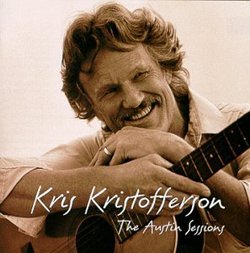 | Kris Kristofferson Austin Sessions Genres: Country, Folk, Pop
No Description Available No Track Information Available Media Type: CD Artist: KRISTOFFERSON,KRIS Title: AUSTIN SESSIONS Street Release Date: 08/24/1999 |
Larger Image |
CD DetailsSynopsis
Product Description No Description Available No Track Information Available Media Type: CD Artist: KRISTOFFERSON,KRIS Title: AUSTIN SESSIONS Street Release Date: 08/24/1999 Similar CDsSimilarly Requested CDs
|
CD ReviewsThe Silver-Pilgrim-Bobby Mc Sunday Morning Devil Shell-Zee | Long Island, NY | 03/04/2006 (5 out of 5 stars) "How can anyone not give Kris BIG KUDOS for revisting some of his signature songs. You know he's that Silver-Pilgrim-Bobby McSunday Morning-Devil! Well HELL! He's more than that. He's even Willie's good buddy and he's Johnny Cash's favorite songwriter. So roll on Kris I'm lovin' this great-great CD...And you keep on keepin' on good friend." RHODES SCHOLAR, U.S. ARMY VETERAN, ACTOR, SINGER-SONGWRITER. ol' nuff n' den sum | the Virginia coast, USA | 07/02/2007 (5 out of 5 stars) "Kris Kristofferson has written some of country music's greatest songs; Me and Bobby McGee, Help Me Make It Through The Night, For The Good Times, Sunday Morning Coming Down, Why Me Lord. He is a Rhodes Scholar (Oxford), a standout collegiate athelete (football, rugby), a Vietnam War-era U.S. Army veteran, a helicoptor pilot and a movie-star who's starred as a leading man in several major Hollywood productions. The guy is an American icon. This 1999 album finds Kris in Austin, Texas (his home state) re-recording his greatest songs with backing vocals from friends like Jackson Browne, Vince Gill, Alison Krauss, Mark Knopfler and Steve Earle. The songs were recorded live in the studio with acoustic guitars, mandolins, harmonica, piano and pedal steel guitar. The album is very well produced and the crispness of the acoustic sound really stands out. The performances are inspired, energetic and focused. Kristofferson's songs are so real, alive and human that they are almost out of fashion in this modern age of music where sometimes it seems that self-serving arrogance is the order of the day. As I listen to these songs today, I can remember when they were hits and winning awards (how can we ever forget the long-haired Kris in 1970; showing up wasted at the CMA Awards show on TV, and staggering up to the podium to accept his award for best song, Sunday Morning Coming Down). The world has changed tremendously since then, but the basic human condition that Kristofferson so penetratingly sings about in these songs is still the same. Kris can say it better than I ever could: He has tasted good and evil in your bedrooms and your bars And he's traded in tomorrow for today Running from his devils and reaching for the stars And losing all he's loved along the way But this world keeps right on turning for the better or the worse And all he ever gets is older and around From the rocking of the cradle to the rolling of the hearse The going up was worth the coming down " Vivid, Striking, and Boldly Performed Karl W. Nehring | Ostrander, OH USA | 07/25/2009 (5 out of 5 stars) "This CD is a reminder of just how many really good songs Kris Kristofferson was responsible for back in the `70s, most of them made into hits by artists other than Kristofferson himself, although he did put out several albums that achieved something of a cult status. A quarter of a century later, Kristofferson has stepped into the studio to revisit his old songs, enlisting the help of some fellow musicians to sing a little harmony (with mixed results: Jackson Browne sounds completely disengaged from and hopelessly irrelevant to "Me and Bobby McGee," Steve Earle stays pretty well in the background but sounds natural in "Sunday Morning Coming Down," Matraca Berg adds a nice touch to "For the Good Times," Vince Gill seems completely miscast singing along with Kris in "Help Me Make It Through the Night," Marc Cohn adds some harmonically helpful vocal support to "Loving Her Was Easier (Than Anything I'll Ever Do Again)," Vince Gill and Alison Krauss sound right at home in "Why Me?," Catie Curtis adds a nice touch to "Nobody Wins," and Mark Knopfler adds both his distinctive guitar style and his voice to the final cut, "Please Don't Tell Me How the Story Ends."
The arrangements are straightforward, with a minimum of instrumentation (typically a guitar or two, bass, and drums), and the tonal balance is rich and warm--it sounds like a studio job mixed on the board rather than in the air, but it has that nice punchy sound, with no edge, the net result being a sound that will come across well on a variety of audio systems, both at home and on the road. These songs may be familiar, but they still pack a wallop. They may be melodramatic, but they are fun to listen to, and you may well find yourself singing along. But these songs can also be disturbing. I was playing this CD in our van one evening, really enjoying it, singing along with some of the songs, when suddenly my 17-year-old daughter exclaimed from the back seat, "Dad, how can you listen to this whole CD?! Every song is about beer and fooling around and it's just so--I don't know..." It was clear that she really hated it, and she could not understand how I could possibly like it. She's right, in a way. The songs really are about sin and self-pity, with a little self-abuse and self-aggrandizement thrown in for good measure. Not a very pretty picture, and not something you would like to think that your father relates to. I suppose the reason many of us like these songs is that they express things we feel hints of but are mostly lucky enough to avoid. "Sunday Morning Coming Down," for example, is a song that resonates deeply in my soul, but I have certainly never been that lonely or that wasted. Maybe hearing it and singing along with it makes me feel glad that I never have been the lonely or that wasted--or makes me feel glad to realize that I have been able to avoid making the bad choices that could easily lead to my having been so. Hearing the song makes me feel lucky--and blessed. This is something that my daughter does not begin to see or feel, and as a father, I rejoice in her innocence and am in a way quite pleased that she finds this music so revolting. She's a great kid whose favorite group is They Might Be Giants, a group that I get a kick out of but will never like as much as she does, even though I am so glad that she really likes them. They are fun and stimulating in a positive way, worlds apart from Kris Kristofferson. Enough dimestore literary criticism and pop psychology--the point is that these songs are vivid and striking, boldly performed and recorded. If you have ever enjoyed any of Kris Kristofferson's songs, you are going to want to pick up this CD." |

 Track Listings (12) - Disc #1
Track Listings (12) - Disc #1
